Vincenzo Nibali: The Lone Shark
Giro d'Italia countdown: 10 days to go!
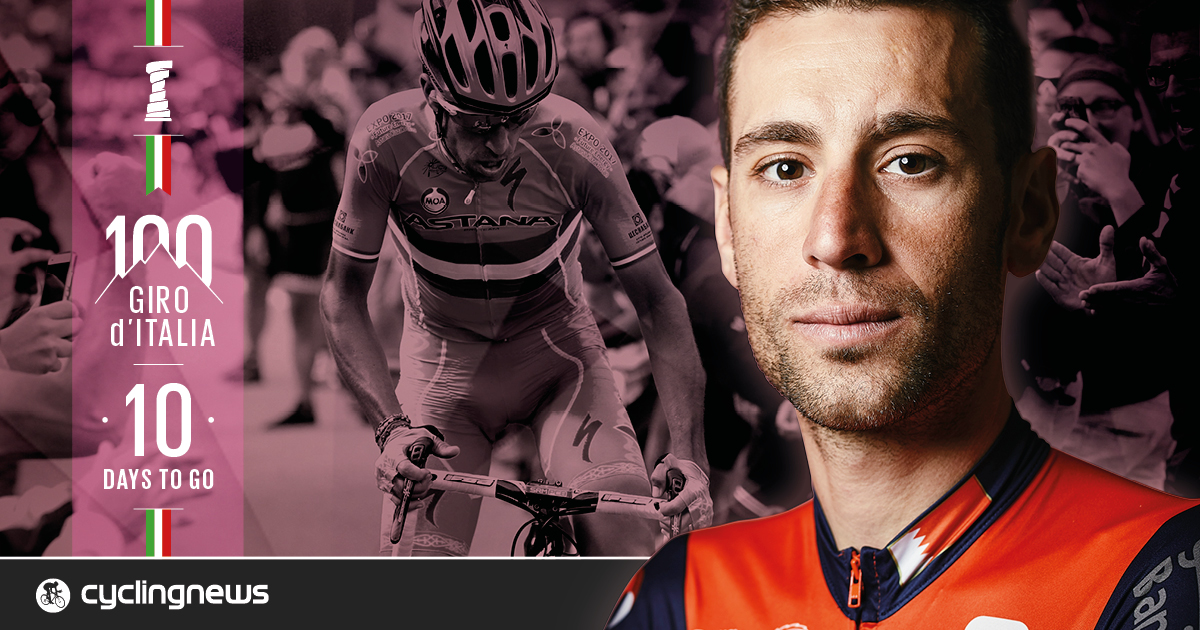
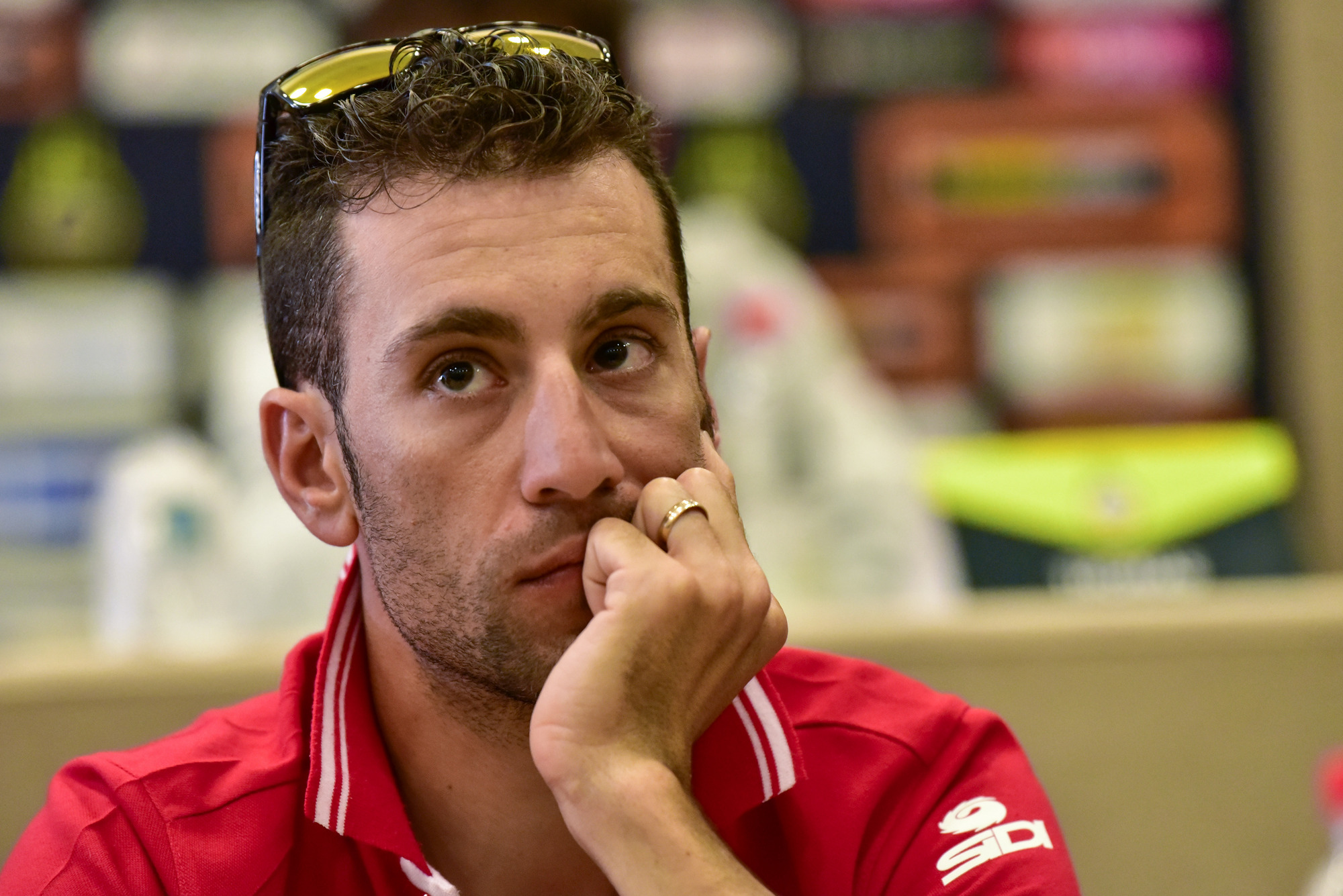
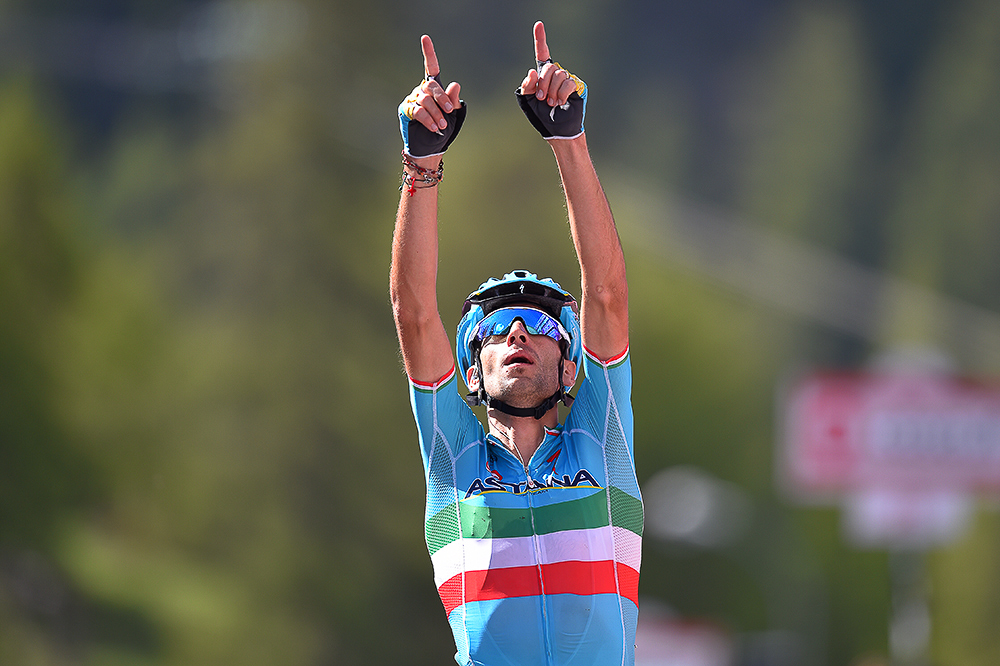
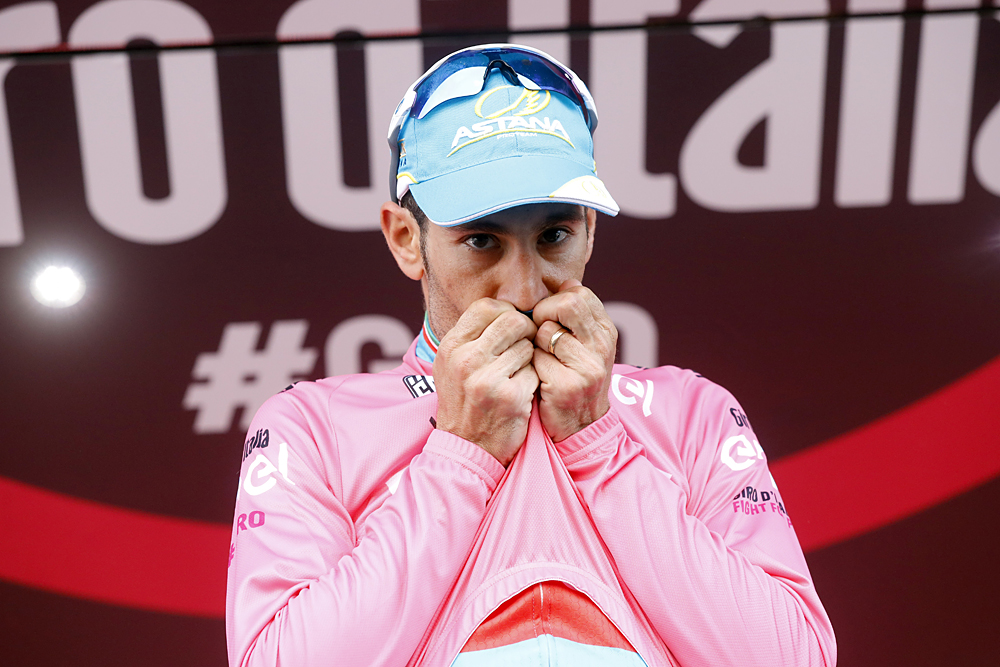
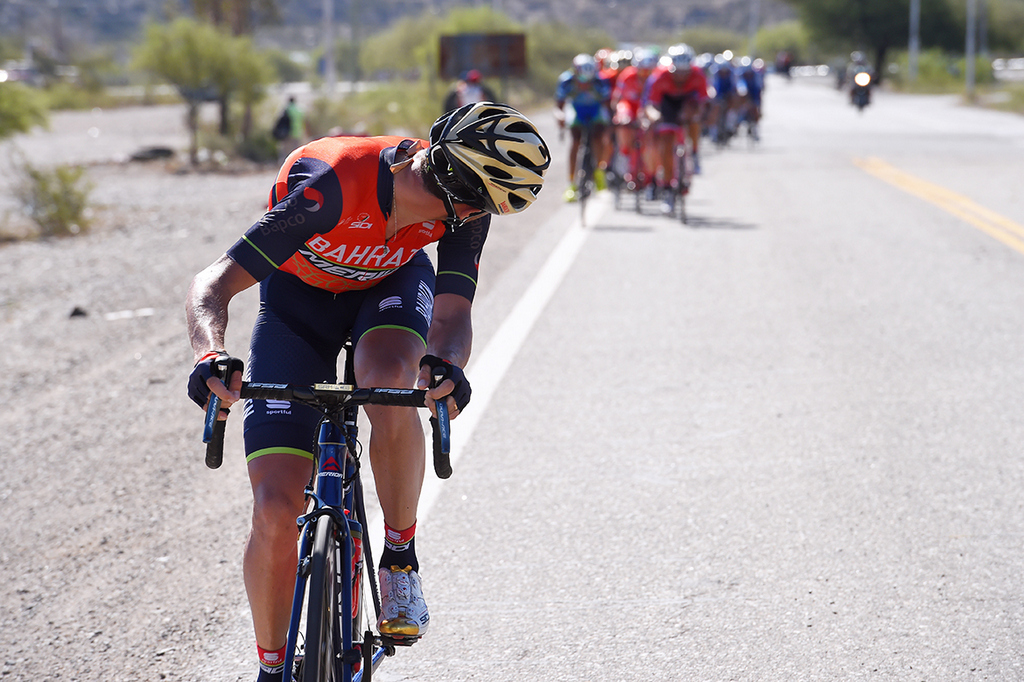
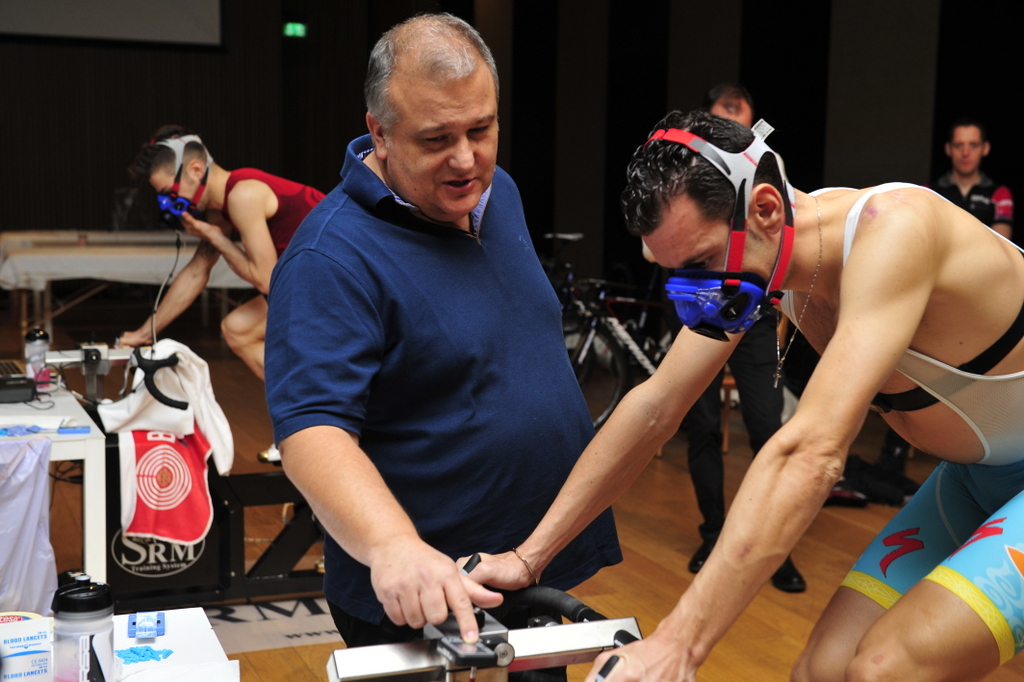
Going into the final weekend of the 2016 Giro d'Italia, nobody thought Vincenzo Nibali had a chance of winning the pink jersey, but a last ditch attack gave him his second overall victory in the race. In this cover feature from the May 2017 edition of Procycling magazine, the 'Shark of Messina' explains why he has high hopes of joining the greats with a third title this year.
Vincenzo Nibali: Spreading the love at Bahrain-Merida
Nibali bids farewell to Astana: 'Even though we will be rivals there remains a special bond'
Nibali dedicates Tour of Croatia victory to Michele Scarponi
InCycle: Inside Philippe Gilbert's Classics renaissance
Quintana to ride the Vuelta Asturias as final Giro d'Italia preparation
Van Garderen and Dennis lead BMC at the Giro d'Italia
Viviani: I'm disappointed to miss the Giro d'Italia but I understand Team Sky's decision
Winning this year's Giro d’Italia would put Vincenzo Nibali in an elite group of just eight riders who have won the Corsa Rosa three times. His name would also go down in the records as the winner of the 100th edition of the race, cementing his status as the best Italian rider of his generation.
Yet the fame, attention and records mean little to Nibali. He is on a far more personal journey. He moved to Tuscany from his native Sicily when he was just 16, to follow his ambitions, convinced of his talent and driven by his inner, very personal, determination.
"I don't think I need to prove anything to anybody else except myself," Nibali tells Procycling during an exclusive interview that reveals a more human and more intimate side to the diffident, almost prickly Nibali we see during races.
"I know where I've come from. I know my past. It was hard to move from Sicily to Tuscany but it was what I really wanted in life. By becoming a cyclist I found my road in life," he says.
"Now I enjoy driving a Porsche thanks to having won the Giro and Tour but it feels as normal to me as catching a bus. It's nothing special because I haven't forgotten when I used catch the bus to school in Empoli, then go training in the afternoon and be far from my family and friends. I haven't forgotten where I've come from."
Nibali speaks little English and so his true voice is rarely heard by those who don't understand Italian. It is a loss for them because he can be profound and emotive, even when talking about cycling. His accent still has traces of his Sicilian origins but it has been imbued with a touch of Tuscan and the harshness of the Veneto dialect from his years at Liquigas.
The latest race content, interviews, features, reviews and expert buying guides, direct to your inbox!
His press officer Geoffrey Pizzorni, who followed Nibali from Astana to Bahrain-Merida, warns us against asking banal questions about the route of the Giro d'Italia and his possible rivals during our time with Nibali one evening during Tirreno-Adriatico. As a result we follow a different road, one which helps us understand Nibali the person as much as Nibali the Grand Tour winner.
Nibali can sometimes seem aloof and distant, but this is down to shyness. He carefully decides his friendships and when and to whom he gives interviews. At last year's Abu Dhabi Tour he refused to speak to the press, determined not to give an inch of space to his time at Astana. He has snubbed some parts of the Italian media for the last year or so after some harsh headlines and criticism during difficult moments at the Giro. Nibali is Sicilian. That means they will probably never be forgiven nor forgotten.
Following his victory at the 2014 Tour de France, Nibali published his autobiography, put together with well-known Italian writer Enrico Brizzi: Di Furore e Lealtà – Of Fury and Loyalty. The title sums him up.
"I think Furore represents my way of racing on the bike and my drive. Lealtà refers to the loyalty I expect from people in my inner circle. I also think I've always been loyal when I've raced and won the Grand Tours that I have," Nibali explains.
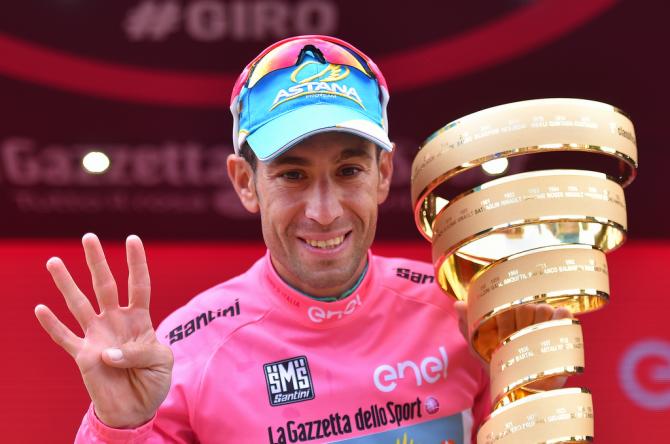
The book tells of his rebellious childhood in Messina, and how his love of cycling came through rides with his father. Nibali affectionately calls him 'Lupo' – Wolf – a nickname Salvatore Nibali earned from friends for his nonconformist nature and his love of long rides into the wild countryside behind Messina. Vincenzo – or Enzo, as he is known at home – was given a bike at a young age to keep him out of trouble. He was soon nicknamed the 'Pulce dei Pirenei' – the Flea of the Pyrenees – thanks to his skinny build.
Nibali recalls how his father cut up his first road bike with a hacksaw after a poor report card at school, only to have it welded back together and restored a few weeks later. His mother was worried about her son moving to Tuscany at just 16 but his family never held him back. They now appear at the end of a Grand Tour to celebrate their son's success and Nibali's father still takes his son motor-pacing whenever he returns to Sicily for a few days.
The book also details Nibali’s cycling development in Tuscany under the tutelage of the GS Mastromarco directeur sportif Carlo Franceschi, with whom he had a close relationship. Francheschi, along with other members of the amateur team, took him to races and looked after him. They would gather to swap cycling stories at the Mastromarco working men's club.
Paolo Slongo has been Nibali's coach since 2008 and is likely to fill several important chapters of Nibali's next autobiography. They have enjoyed the highs of Grand Tour success, and also a number of lows, including a difficult winter before the success of 2014. Nibali admits in Di Furore e Lealtà that he may have celebrated too much after winning the 2013 Giro d’Italia, "eating too much lasagna". He did little training at home, so Slongo visited him at his home in Lugano and reminded him of his responsibilities as a professional. It was an important moment in their relationship.
"Vincenzo often says we have a love-hate relationship," Slongo tells Procycling. "He knows that I help him but he also hates me because I can get him to do seven hours on the bike, when he'd rather just do six."
Slongo has had to earn Nibali's trust over years of working together. "At first it wasn't easy to work with him because he wasn't very keen on structuring his training. He preferred to follow his instincts," he says. "I never tried to impose things on him but he gradually realised that specific workouts, time at altitude and 100 per cent dedication to a goal can pay off and help him win a Grand Tour. I've always respected his character as a rider and the way he sometimes improvises his racing but I've also bought a little more science into his life and training.
"It's not easy to get him to change because if you try to force him to do something he'll shut you out. You've got to earn his trust and then involve him in your plans, only pushing him to do something every so often by prodding his pride. I think it comes to his origins because Sicilians are known to be very proud people. It's also his character. Vincenzo responds when his pride is hurt. His ability to fight back when he’s on the ropes is incredible. He perhaps closes himself off and sometimes lets criticism and stuff on social media hurt him but then he comes out fighting.
"I sometimes fear he might lack the motivation to race for another season but he's not like that. Year after year, success after success, he always gets back up and wants to race on."
Nibali turned 32 last November and is moving towards the final years of his career, but he insists he is as motivated as ever after joining Bahrain-Merida. The team has been built around him. He is the undisputed team leader and its figurehead, with Jon Izagirre and Janez Brajkovic the only other stage race riders of note. Nibali's success in 2017 will be a measure of the success of the new team.
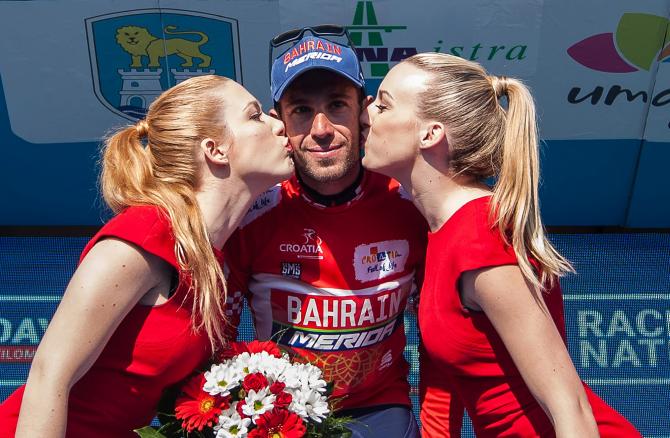
Nibali made his professional debut with the Fassa Bortolo team in 2005 but spent much of his early career at Liquigas, winning the GP Plouay in 2006 and then the 2010 Vuelta a España when just 25, fighting his way to victory on the narrow concrete road to the summit of Bola del Mondo that looms over Madrid.
Despite an occasionally acrimonious relationship with team manager Alexander Vinokourov, Nibali spent four years at Astana between 2013 and 2016. The Kazakh team took advantage of Nibali's maturity as a Grand Tour rider, paid him handsomely and helped him win the 2013 Giro d'Italia, the 2014 Tour de France and a second Giro last year.
Of course, Nibali's career has included some deep lows between the highs. He has won close to 50 races, including two back-to-back Italian national titles, but he was also disqualified from the 2015 Vuelta for holding onto a team car following a late puncture during stage 2. He restored his pride and credibility by bouncing back to win Il Lombardia with a solo attack.
In 2016 he won the Giro d'Italia but then came under fire for riding the Tour de France to prepare for the Olympic road race in Rio. He was in the decisive attack on the final climb in Rio but then crashed on the descent with Sergio Henao and fractured his collarbone, virtually ending his season.
Bahrain-Merida is only Nibali's fourth team in a 12-year career, after seven seasons with Liquigas and four with Astana. Loyalty seems to be a theme.
"My dad has always told me that when you enjoy your job and where you work, you should think long and hard about changing things because you never know what you might find," Nibali says.
"Some riders change teams a lot, almost every season, for lots of different reasons, but I think it's easier and better for Grand Tour riders to stay longer in teams. We perhaps need more time to build a team of riders and staff around us that can help us win.
"I think Liquigas helped me develop as a young rider. Astana found me ready and able to win Grand Tours and helped me take advantage of the moment. Now I'm at Bahrain-Merida I've just got to keep on winning."
In his autobiography Nibali describes Chris Froome as "robotico" for the way he and Team Sky sometimes ride, using their power meters to control and gauge their effort on the big climbs at the Tour.
"I hope I'm more exciting to watch when I race," Nibali says, underlining his own very different style.
"Sadly we all have to race with our power meters these days because it helps manage your effort during the race. It helps keep your energy consumption under control and gives you other important information. But I believe it's the rider who still makes or breaks the race. Your fitness and physiology is the foundation of everything but it's also about choosing the right moment to attack. If you don't have that skill, that intuition, then I think it's very difficult to win races and especially difficult to win Grand Tours.
"I try to create something that perhaps isn't there. In lots of ways it's like fighting against yourself. As humans we always want to do better, we compete against ourselves. I think it comes from personality. I'm impulsive in life and so I'm also impulsive when I race. It might not be the best way to win, say, the Tour de France but it's who I am and it's worked for me a few times."
This is an abridged version of a feature in Procycling May 2017, available in UK shops from Tuesday 25 April.
You can subscribe to the Cyclingnews video channel here.

Stephen is one of the most experienced member of the Cyclingnews team, having reported on professional cycling since 1994. He has been Head of News at Cyclingnews since 2022, before which he held the position of European editor since 2012 and previously worked for Reuters, Shift Active Media, and CyclingWeekly, among other publications.